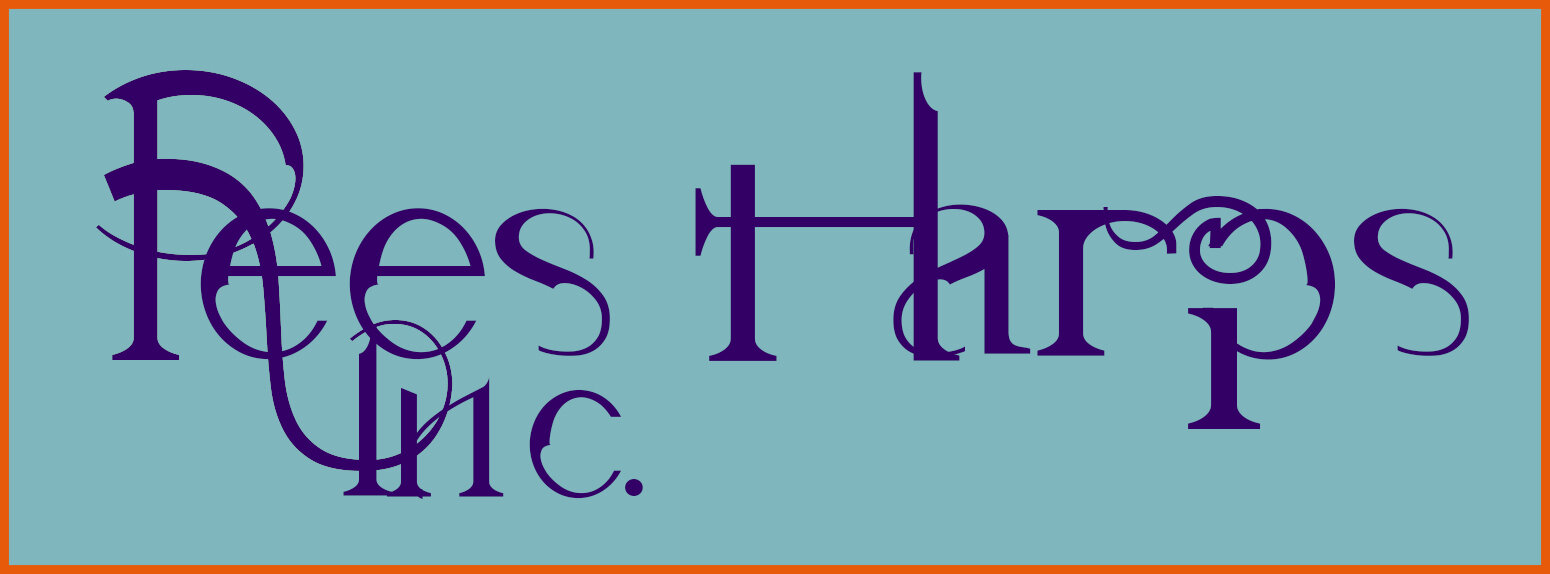Finding a Harp Teacher
The Problem
For the beginning harper who wants to have the support and guidance of a teacher one of the the more difficult challenges may be finding the right person. The thing that makes it so hard is that a high percentage of the people who say that they teach lever harp actually do not. But, please hear us when we say that these folks are not trying to mislead the prospective student. For the most part, they really do not know what they do not know.
It is, at its heart, a cultural problem. So many of the modern pedal harp teachers were raised in a harp environment where the pedal harp was the only harp. They were taught that all things can be played on a pedal harp and that any other harp is limited. They believe that pedal harp technique is applicable to all harps. They even believe that one "moves up" from a lever harp to a pedal harp. These are all misconceptions and they can all get in the way of a beginning lever harp student's progress.
As a prospective lever harp student, your goal is to find a teacher who has a solid understanding that various types of harps require different playing techniques. Think of the violin family. A teacher would never teach a student to play the double bass and then teach them to use the same technique to play a violin! Pedal harps and lever harps are not the same instrument and require different techniques. A student must find a teacher that is familiar with the techniques of the type of harp he or she wishes to play.
It is also worth saying that what a student wants to play matters. There are harp traditions from all around the world and even close neighbors, like Irish and Scottish harp, have distinct technique and stylistic differences. The good news is that if you begin with solid lever harp technique you can then transition to more sophisticated and specific musical traditions as you grow into your instrument and music.
A harp workshop led by Máire Ní Chathasaigh on an Aberdeen Meadows Harp.
Resources Abound
The internet has become a powerful force in the harp community and one of the most exciting developments is the ability of teachers, in any part of the world, to take on students via Skype and other internet-based services. Additionally, most harp method books now include excellent DVD's to support the learning process. Ten years ago, you could be located, literally, hundreds of miles from the nearest harp teacher. Now, you have access to some of the very best right from your own home.
There are also excellent harp conferences and gatherings on a regular basis in most parts of the world. Most of these feature workshops given by highly respected harpers and it is in these environments were harpers are exposed to new technique, music and the deep culture of the harp.
Some Tips
The last thing to know is, fear not, there are many, many fabulous harp teachers out there. Be persistent, be informed and be positive because you will find the right person.
So how does a novice find the right teacher? First, it is important to know that just because a teacher teaches pedal harp they must not immediately be excluded. There are many versatile pedal harpists who have a clear understanding of the diversity of the harp family. A good sign is if a teacher asks you what type of harp you play and what kind or style of music you want to play. They should also ask you your goals for learning to play the harp. Any well informed, broadly skilled harp teacher will teach very differently to a student who has a Troubadour and wants to play with the youth symphony versus a student who has a lever harp who would like to be able to play at weddings versus a student with a lever harp who wants to learn to play for their own enjoyment. If a teacher does not ask these basic questions, they generally are teaching only one technique. Keep looking! A good lever harp teacher should be able to mold their lessons around your goals. They should be able to teach to you as an individual.
One other important thing you want to have in a harp teacher is someone who understands how to teach you to avoid injury. Carpal-tunnel syndrome, back and shoulder injuries are rampant in the harp world. If you find your hands, arms, shoulders or back cramping and in a position which is not neutral, these are indicators of trouble. Check with your teacher to correct your habits but be willing to change teachers if necessary.
There are a few actual warning signs when selecting a teacher. If a teacher speaks of "moving-up" to a pedal harp unless that is your goal, that is a problem. If a teacher feels a lever harp is too limiting, that is a problem. If a harp teacher refers to "standard string spacing" or "standard string tension," be leery. (These are pedal harp specific concepts.) The point is, do not let a teacher push you where you do not want to go.


